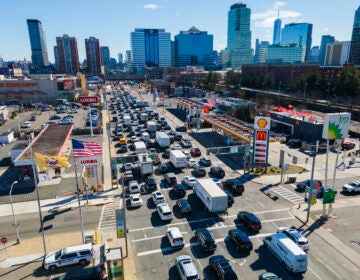New way of calculating N.J. graduation rate shows all is not well in public schools
There were two big announcements from the NJ Department of Education this week.
This is commentary from education blogger Laura Waters of NJ Left Behind.
There were two big announcements from the NJ Department of Education this week.
First, when today’s 4th graders — the Class of 2021 — get to high school, they’ll no longer take a single comprehensive high school proficiency assessment (the HSPA) as a prerequisite to graduation. Instead of the HSPA, considered an 8th-grade level test, academic proficiency will be evaluated through a series of end-of-course assessments given in 9th, 10th, and 11th grade.
Second, the DOE has recalibrated methods for calculating high school graduation rates based on recommendations from the National Governor’s Council and a mandate from the U.S. D.O.E.
While NJ’s graduation rate historically has been listed at close to 95%, this more accurate reporting method reduces our rate to 83%. Suddenly there’s not much to write home about, especially when one considers the widely-publicized fact that 90% of freshman at Essex Community College and 30% of freshman at Rutgers require remedial coursework.
These changes are serendipitous for those of the education reform persuasion, and dovetail smoothly with the Christie Administration’s vigorous attempts to highlight educational disparities within the state. It’s pretty tough to make an argument for systemic change when the perception is that all is grand amongst our public schools, no hard task to diminish the importance of the historically low performance of poor urban schools by ascribing the disparities to the intractable effects of poverty.
Why bother with the expansion of school choice or changes in tenure law if the system’s working just fine?
Sometimes perception is everything.
School reform advocates in New Jersey have struggled for years to swing public sentiment in support of widespread changes to a system that works well, albeit expensively, for kids who live in one of our many high-achieving suburbs. Various lobbying groups are invested in the perception that our schools are uniformly great.
For example, NJEA’s website pronounces that “New Jersey ranks first in the nation in the percentage of students graduating high school!” (We lose that status under the new calculations, although we’re still in the top 10.) NJEA also crows, “New Jersey leads the nation in high graduation rates among minority students.”
Not so much.
According to the new graduation rates listed by the NJ DOE, Pleasantville City High School has a 64% graduation rate, Camden High has a 44% rate, Irvington High School has a 50% rate, and Trenton’s high schools graduate 47.7% of its students.
The expansion of qualifying tests for high school graduation — subject-specific tests in each grade — has a similar impact on perception and, consequently, on politics and potential legislation. If acquisition of a diploma requires proficiency in, say, Algebra 2, that’s a cakewalk for your average kid in a relatively wealthy suburban district where most kids end up going all the way through Calculus.
But if the majority of our poor students can’t pass the Algebra 2 test, then it becomes more difficult to oppose reforms intended to help those students. These efforts to increase requirements for high school graduation predate the Christie Administration.
In 2005, then- Education Commissioner William Librera, in the context of contesting the overuse of a widely-derided “alternative” high school assessment, issued a memo to the State Board of Education warning that “approximately one-fifth of our students are unable to meet the state requirements for a diploma.”
A few years later in 2009 the Corzine Administration, under the auspices of the High School Redesign Committee, proposed adding proficiency tests in Algebra 2, chemistry, and physics. But these well-intentioned efforts to increase accountability and rigor in all our high schools went nowhere. Now circumstances have changed, aided by support at the federal level through the passage of national curriculum standards and programs like Race To The Top.
The Christie Administration, the wind at their backs (at least in the chamber of education reform), is willing to give it another whirl. With the revelations of NJ’s real graduation rates, maybe we’ll get somewhere.
Laura Waters is president of the Lawrence Township School Board in Mercer County. She also writes about New Jersey’s public education on her blog NJ Left Behind. Follow her on Twitter @NJleftbehind.
WHYY is your source for fact-based, in-depth journalism and information. As a nonprofit organization, we rely on financial support from readers like you. Please give today.




